Sperm Freezing for Future Use: Costs & Best Duration
Fertility Treatment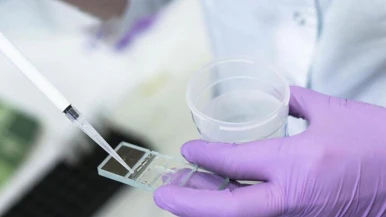
As the age of marriage continues to rise, the need to maintain fertility in older age has become a growing concern. In the past, men and women had a limited window of opportunity to have children before losing their chance, but now techniques like sperm banking offer hope for couples who wish to conceive at a later age.
Infertility affects around 20% of Iranian couples, with 40% of cases attributed to male factors such as low sperm count or poor quality sperm. Sperm freezing can provide a solution for male infertility, offering the possibility of future parenthood or sperm donation to help infertile couples overcome underlying medical conditions.
Sperm freezing, also known as sperm cryopreservation, involves storing male reproductive cells in a sperm bank for use in assisted reproductive technologies. Sperm freezing success rates are so promising that encourage people to use this technique. This article will explore the process of sperm banking, its applications in male infertility treatment, potential risks and complications of this technology, methods of freezing the sperms and maintenance of sperm quality, and how to access services from sperm freezing centers.

What Is Sperm Freezing?
Sperm freezing is a process that involves preserving male reproductive cells at extremely low temperatures for future use in fertilization. This technique can be beneficial for couples who struggle with fertility issues or who wish to delay parenthood. However, it is important to note that healthy eggs and sperm and a suitable uterine environment are necessary for a successful pregnancy.
Sperm freezing is commonly used in various fields, including animal husbandry, sperm banking, and Types of Infertility Treatment Methods . The freezing process occurs at a temperature of -196 degrees Celsius using liquid nitrogen to halt the biochemical activities within the sperm cell. While prolonged sperm freezing may reduce its fertility, this method can be valuable for men who are experiencing a decline in sperm count and quality. It is crucial to recognize that age-related changes in sperm quality can increase the risk of chromosomal disorders like Down syndrome (Trisomy 21) in offspring.
Sperm Freezing Success Rate
Sperm freezing is a great method for men who want to preserve their fertility and have their biological children, but this technique is not successful in all cases. The sperm freezing success rate is around %50. In other words, almost half of the frozen sperm survive after thawing and can be used in IVF or IUI. Fortunately, using frozen sperm in assisted reproductive technologies eliminates birth defect rates (%0).
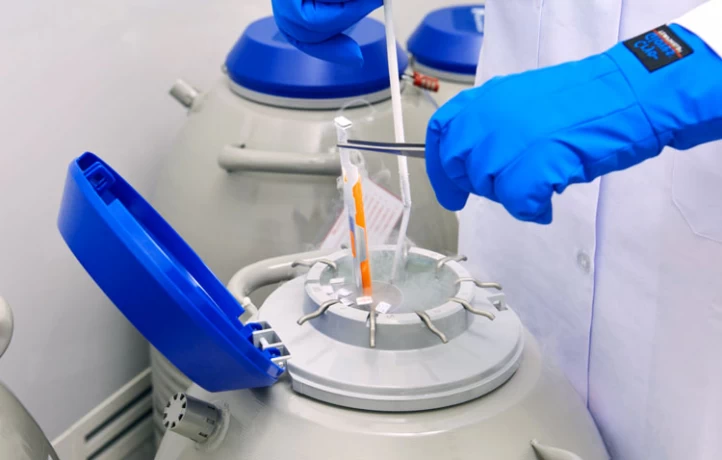
How to Prepare for Sperm Freezing?
Men can effectively prepare for sperm freezing by taking the following measures:
- Consult with a urologist to discuss the need for sperm freezing and undergo a thorough examination;
- Undergo necessary tests for infections such as AIDS hepatitis and a semen analysis to evaluate sperm quality;
- Address any potential infections or health issues before proceeding with sperm sampling;
- Schedule the day for semen sampling and proceed with the freezing process within 1-2 days.
How Is Sperm Freezing Done?
Sperm freezing is a process that aims to prolong the lifespan of sperm by halting its biochemical processes. This is achieved by freezing the water in the cells, which reduces or stops molecular movements and biochemical activities, thereby increasing the cell's survival.
Freezing methods such as slow freezing can be used to minimize the damage caused by ice crystal formation in the cells.
The sperm freezing process may typically involve:
- Visiting an infertility clinic to be examined by a specialist;
- Conducting blood tests to ensure the absence of infectious diseases such as hepatitis, AIDS and syphilis;
- Providing a semen sample by methods such as masturbation, electrical stimulation, ejaculation after intercourse in a condom, or testicular biopsy (taking a small sample of testicle tissue);
- Collecting sperm samples in a sterile laboratory container;
- Separating the sample and combining it with a particular substance to prevent possible damage to the sperm during the freezing procedure;
- Checking the sperm quality, including the number, concentration in the semen sample, morphology, type, and motility of the sperm;
- Placing the sperm sample in laboratory tubes to facilitate their repeated use
- Starting the sperm freezing process;
- Storing the frozen sperm in liquid nitrogen until needed.
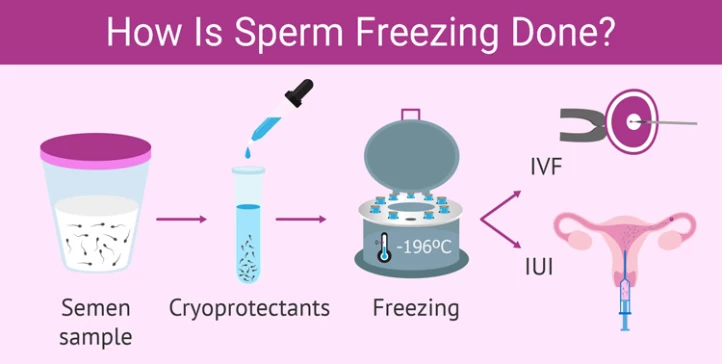
Who Should Freeze Their Sperms?
Sperm freezing is a versatile technique that has numerous applications in the field of male infertility treatment and disorders of the male reproductive system. You should freeze your sperm if you:
- Want to preserve your sperms to have biological children throughout your life;
- Have to get a reproductive surgery that may affect your ejaculation and sperm production;
- Want to get a vasectomy;
- Are much older than your wife and want to keep your healthy sperms for the future;
- Have to get life-threatening treatments such as chemotherapy and radiation therapy;
- Should take hormonal medications, antidepressants, hair loss medications, and other drugs that affect fertility;
- Are prone to cancer or kidney diseases;
- Are experiencing low sperm count or rapid sperm reduction;
- Have a family history of azoospermia;
- Cannot be at the clinic on the day of performing infertility treatments such as IVF;
- Are constantly exposed to X-rays, radioactive substances, chemical products, toxins, extreme heat, and other substances harmful to sperm health;
- Should get assisted reproductive technologies (ART), especially for more than one cycle;
- Want to donate sperm;
- Are at risk of injury or death (for example, you are a war soldier);
- Are you a transexual and want to keep your fertility before transitioning to female?
It's worth mentioning that some men donate their sperm for scientific studies related to male infertility rather than for reproduction. Typically, frozen sperm can be stored for up to a decade or more. However, if you're certain that you won't need your stored sperm, you can request that the sperm bank dispose of it.

How to Get Pregnant with Frozen Sperm?
Assisted reproduction technologies such as IVF, IUI, or ICSI are used to fertilize the egg with the frozen sperm.
During IVF and ICSI, the retrieved egg is combined with the thawed sperm in a laboratory dish. Hormone therapy can be used to stimulate ovulation.
During the IUI method, there is no need for in vitro fertilization, as the sperm sample is injected directly into the uterus.
The resulting embryos are finally transferred to the mother's uterus to implant and develop.
How Much Does Sperm Freezing Cost?
Understanding the cost of sperm freezing can help couples plan more precisely how and when to do the treatment. However, the cost of sperm freezing may vary depending on the fertility clinic, the urologist's fee, and the cost of necessary tests such as blood tests.
Typically, there's one cost for sperm collection and freezing. Then, depending on the desired period of sperm storage, a cost should also be paid annually to the embryology laboratory and sperm bank. Therefore, it is best to ask a doctor to know the exact cost of sperm freezing.

Frequently Asked Questions About Sperm Freezing
1) What is the Chance of Pregnancy with Frozen sperm?
The chance of pregnancy with frozen sperm depends on factors such as the method of freezing and the age and fertility of the female partner. Typically, frozen sperm is utilized in microinjection (ICSI) treatment and occasionally in IUI and IVF methods. It is important to note that some sperm may be lost or damaged during the freezing process.
Despite this, research has shown that the success rate of pregnancy with frozen sperm is similar to that of fresh sperm, which typically includes some weaker and malformed sperm in the semen sample.
2) What should we do if sperm freezing goes wrong?
In the rare cases that sperm freezing is unsuccessful due to poor sperm quality or azoospermia, alternative options for starting a family, such as using donor sperm or adoption, can be considered.
3) What are the best sperm freezing centers?
To ensure the highest chances of success with sperm freezing, it is recommended to seek out medical centers with well-equipped facilities and experienced doctors. Clinics and hospitals with a proven track record of success in performing this procedure are the best options to consider.
4) Why does sperm freeze before IVF?
Although not mandatory, sperm freezing can be beneficial for certain patients undergoing IVF. Men who experience a shortage of healthy sperm in each semen sample may find it advantageous to freeze their sperm to ensure an adequate supply of healthy sperm on the day of the procedure without the need for additional sample collection.
5) Can sperm be stored in the home fridge?
No. Sperm must be kept in a sterile, low-temperature laboratory environment to maintain its viability for longer. The recommended temperature for storing sperm is between -196 C˚, which is much beyond the temperature of a typical home fridge. Therefore, it is recommended that patients conduct the sampling process at a relevant clinic where the sperm can be quickly transferred to the laboratory. If collecting semen at home, a home sperm bank kit can be used, but the sample must be delivered to the laboratory as soon as possible.
6) Who are not Good Candidates for Sperm Freezing?
Freezing sperm is not recommended for men undergoing certain treatments, such as chemotherapy, as it can damage the sperm DNA and result in defective cells. However, if an individual knows they may need chemotherapy in the future, freezing their sperm before treatment may be a viable option.
7) Is sperm freezing dangerous?
Sperm freezing poses no significant risks or complications for the father, and the likelihood of genetic defects in offspring is comparable to those conceived through natural means.
8) How Long Does Frozen Sperm Last?
Frozen sperm can be stored for many years, as evidenced by successful and healthy births even after 20 years of storage. However, it is generally advised to use the frozen sperm within ten years for optimal chances of conception.
9) Can I freeze sperm at home?
Freezing sperm requires advanced technologies, so it is impossible to do it at home.
10) how long do sperms live after being thawed?
The frozen sperm will survive 24 hours after being thawed. Therefore, it is done at the time of the mother’s ovulation.

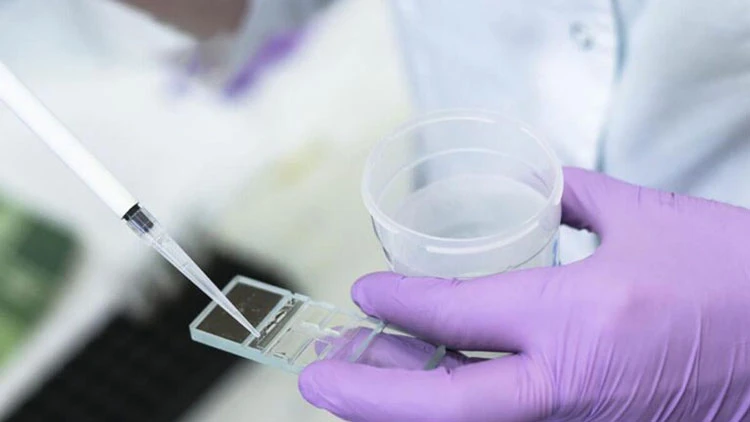




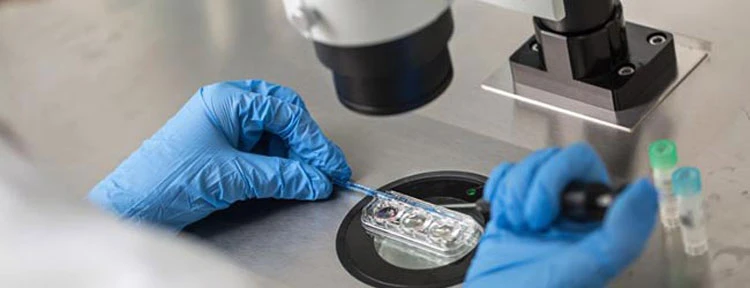




User
-Great to see the options clearly explained. It’s reassuring to learn about the procedure, timing, and long term storage considerations.
User
-Informative article on sperm freezing that explains the process, benefits, and ideal time for preservation very clearly.
User
-Nice article on sperm freezing It’s important that people understand preservation is an option
User
-Nice post on sperm freezing It’s helpful to see preservation options laid out so clearly.
User
-Important topic. Thanks for including this subject in your blog.